The Academy of Scientific Investigative Training
World renowned Nate Gordon will be returning to South Africa as the Academy for Scientific Investigative Training will be hosting an American Polygraph Association accredited beginner polygraph course in Gauteng, South Africa, from 8 January 2024 to 15 March 2024. If you wish to start a career as a skilled polygraph examiner and lie detector with an internationally recognized qualification, then this is the place to start.
The Academy for Scientific Investigative Training is a professional institution offering a comprehensive education in the art of the detection of deception. Studies of theory, history and psychophysiology are pursued through lecture and assigned reading. Theory is quickly put into practice as students receive hands on instruction with a variety of polygraph instrumentation, from the older mechanical instruments, to the most modern electronic and computerized instrumentation available.
Students become thoroughly versed in all major techniques, including that of Reid, Backster, Utah, Matte, Marcy, Federal Zone, Peak of Tension, Concealed Information Test, Positive Control and the Academy’s “Integrated Zone of Comparison Technique,” and “Polygraph Verification Technique.” Several methods of chart interpretation and numerical scoring, including the Academy’s own “Horizontal Scoring System,” are mastered by the students, in a modern classroom facility while they observe ongoing testing and participate in mock examinations. Experience in a variety of testing situations is provided, from criminal to business investigation, and pre-employment analysis. The Academy is the only school offering an education in the Morgan Interview Thematic Technique (MITT), a projective test that assists in assessing a person’s truthfulness as well as provides important information that can be used in post-test interviews.
The Academy’s educational concept is distinguished as one that aims for total involvement of the student, from theory, techniques and instrumentation, through direct student involvement and participation in the testing procedure. Eligible candidates enter the Academy for comprehensive study and eight weeks later graduate as professionally trained Forensic Psychophysiologists. Students leave the Academy with an operational expertise geared to his or her individual working style and environment. The Academy’s executive offices, classroom and truth verification laboratory are located in the fashionable Rittenhouse Square area of centre city Philadelphia. Our outstanding facility is within walking distance of numerous hotels, restaurants, and fine shops. The Academy of Scientific Investigative Training is proud to be an Equal Opportunity Employer.
Nathan J. Gordon, B.A.
Nathan J. Gordon is founder and Director of the Academy for Scientific Investigative Training. He is a past President of the American Polygraph Association, and also served as President Elect, and two terms as Vice President Private. He is currently President of the Pennsylvania Polygraph Examiners’ Association and previously held that position from 1987-1995. He has Chaired the APA’s Membership Committee, and has served on the Finance Committee, Continuing Education Committee, Legislative Committee, and Research Committee. He is a charter member and Board of Director of the Vidocq Society, a nonprofit organization of forensic experts, featured on CBS’s “48 Hours.”
Mr. Gordon began his investigative career in 1969 and since, has been actively engaged in all aspects of criminal, retail and industrial investigation. He is internationally recognized as an expert in the fields of forensic psychophysiology, behavioral assessment interviewing and interrogation. He has been used as an expert witness in cases before local, state, federal and military courts of law. He has personally conducted over 11,000 polygraph examinations, solving many hundreds of them by confession, including numerous homicides. Mr. Gordon is coauthor of “Effective Interviewing and Interrogation Techniques,” and has published numerous research papers and articles on forensic psychophysiology, investigation and security. He is the innovator of the Integrated Zone of Comparison Polygraph Technique, the Horizontal Scoring System and Academy’s Algorithm for manual chart analysis. He wrote and produced a three-tape video program on interviewing and interrogation, and was a national lecturer for the University of Delaware’s Body Movement in the Interview Process Seminar. He has appeared on 48 Hours, Good Morning America, and CNN 8. He has a certificate in Law Enforcement, an Associate’s degree in Criminal Justice, and Baccalaureate degree in Psychology from Temple University.
FORENSIC PSYCHOPHYSIOLOGY COURSE OUTLINE
(Ten Weeks/400 Hours Academic/Two Weeks Post Graduate Work 80 Hours)
History and Development: (Eight Hours)
The History of lie detection is traced from primitive man to its evolved state of art and will be presented to the student in an interesting and informative manner.
Psychophysiology: (Fifty-six Hours)
Students will study the interrelationship between the mind and body, through an in-depth examination of the effects of emotions on the nervous system, and the subsequent changes in body organs and systems. These changes are what Forensic Psychophysiologists monitor and record for interpretation of truth or deception.
Instrumentation: (Twenty-four Hours)
Students will be instructed in the complete nature of both state of the art and the more traditional instrumentation used in the detection of deception, including their construction, operation, calibration, and maintenance. Both mechanical and electronic analog instruments will be covered, with a major focus on computerized polygraph systems. Students will learn and demonstrate proper component placement, proper software operations, acceptable data collection practices, and the use of standardized annotations used in polygraph examinations.
Techniques: (Fifty-two Hours)
A comprehensive study of the various forensic psychophysiological techniques in use today, including the Reid General Question Technique, Marcy Technique, Backster Zone Comparison Techniques, Federal Zone, Utah Zone, Matte Quadri-Track, AFMGQT, Positive Control, Recognition Tests, and the Academy’s Integrated Zone of Comparison Technique and Polygraph Verification Technique. The student will acquire a working knowledge of each of major polygraph techniques and will be capable of using any of them in the field for both law enforcement and commercial purposes.
Interviewing: (Forty-eight Hours)
The student will be taught to properly prepare an examinee for forensic psychophysiological criminal and screening examinations, along with various methods of ascertaining critical information from the individual. The student will learn to analyze Nonverbal Behavior and Unwitting Verbal Cues, with the latest advances in this field, such as, the Morgan Interview Thematic Technique, and Forensic Statement Analysis. Students will be instructed in the Integrated Interrogation Technique, which will allow them to masterfully obtain confessions from deceptive examinees in a non-intrusive system.
Question Formulation: (Thirty-two Hours)
This area of instruction covers one of the most vital phases of truth verification, the selection of the correct issue and formulation of questions, which reflect both the needs of the examiner and the concepts of the examinee. Students will be trained to artfully develop polygraph questions
Chart Interpretation: (Forty Hours)
Chart analysis is the final and most crucial part of any polygraph examination. This phase of study teaches the student how to understand the physiological phenomena recorded by the instrument, to make the proper and necessary comparisons, and to reach an accurate conclusion of truth or deception. The development of numerical evaluation is taught from its origin with the Backster technique to the latest advancement with the Academy’s own Horizontal Scoring System.
Deliberate Distortions: (Sixteen Hours)
The student will learn to identify common types of countermeasures and augmentations, as well as atypical physiological data. Both anti-countermeasure and counter-counter measure procedures will be addressed.
Information and Results Reporting: (Sixteen Hours)
The student will learn and demonstrate an understanding of necessary information for proper presentation of test results and writing of reports, as well as maintain records within the parameters of business and legal necessities.
Practicum: (Eighty Hours)
Students will observe examinations in the Academy’s modern polygraph laboratory. Students will be presented with hypothetical case facts and be required to construct and administer a complete polygraph examination to resolve the issue in a mock crime or screening paradigm. This practical experience allows the students to practice everything that they have been taught. This practice has been the most effective method in training examiners to be able to properly administer forensic psychophysiological examination in the field.
Legal and Ethical Aspects: (Twelve Hours)
Experience has taught us that ethical conduct by the forensic psychophysiologist is essential. A code of conduct and standards of practice prescribed by the American Polygraph Association will be presented and discussed. Students will be informed of the latest available legal opinions from the courts concerning lie detection and its application. The student will be instructed in proper methods of testifying as an expert witness in civil and criminal court proceedings, and administrative hearings.
Forensic Psychophysiology Research and Methods: (Sixteen Hours)
The basis of any scientific technique requires that it be valid and reliable. Our students will be familiarized with current research regarding the validity and reliability of the forensic psychophysiological technique, as well as demonstrate conceptual knowledge of sensitivity, specificity, false positive and negative errors, and statistical significance in the application of these concepts to diagnostic and screening tests. Students will also be acquainted with published scientific research data and journals and ascertain a basic understanding of scientific experimental design.
** Minor adjustments to topic hours may be made to suit the needs of any given class as long as the minimum hours for each topic required by the American Polygraph Association are met.
The American Polygraph Association
Established in 1966, the American Polygraph Association (APA) is the world's leading association dedicated to the use of evidence-based scientific methods for credibility assessment. The APA promotes the highest standards of professional, ethical and scientific practices for its 2700+ members through the establishment and publication of standards for professional practice including techniques, instrumentation, analysis, research, training and continuing education. The American Polygraph Association (APA) is a professional organization that exists to provide training, model best practices, and offer professional resources for the continued growth of ethical and evidence- based detection of deception through the use of polygraph. The APA membership consists of professional polygraph examiners, educators and researchers who share a common commitment to the public interest through the development, communication and promotion of valid and ethical polygraph practices.
Contact Us
For more information regarding the training or to request registration forms, please do not hesitate to contact us in South Africa:
Mrs Joanette Karsten
Email: Joanette@polyinstitute.co.za
Phone: +27 84 640 4182
Download Brochure: DOWNLOAD
For any further questions or enquiries: CONTACT US
Visit the website of the Academy of Scientific Investigative Training: VISIT
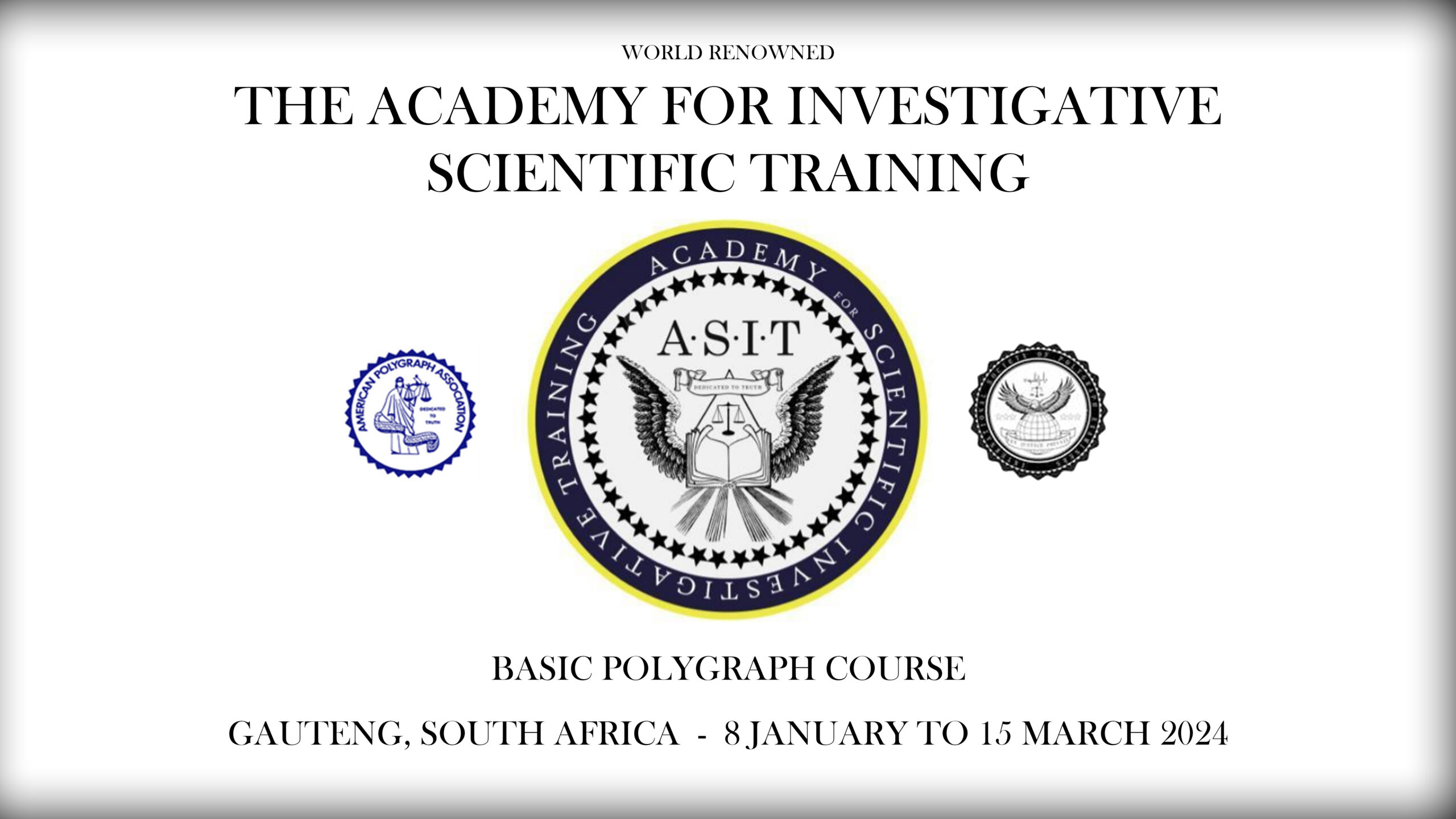
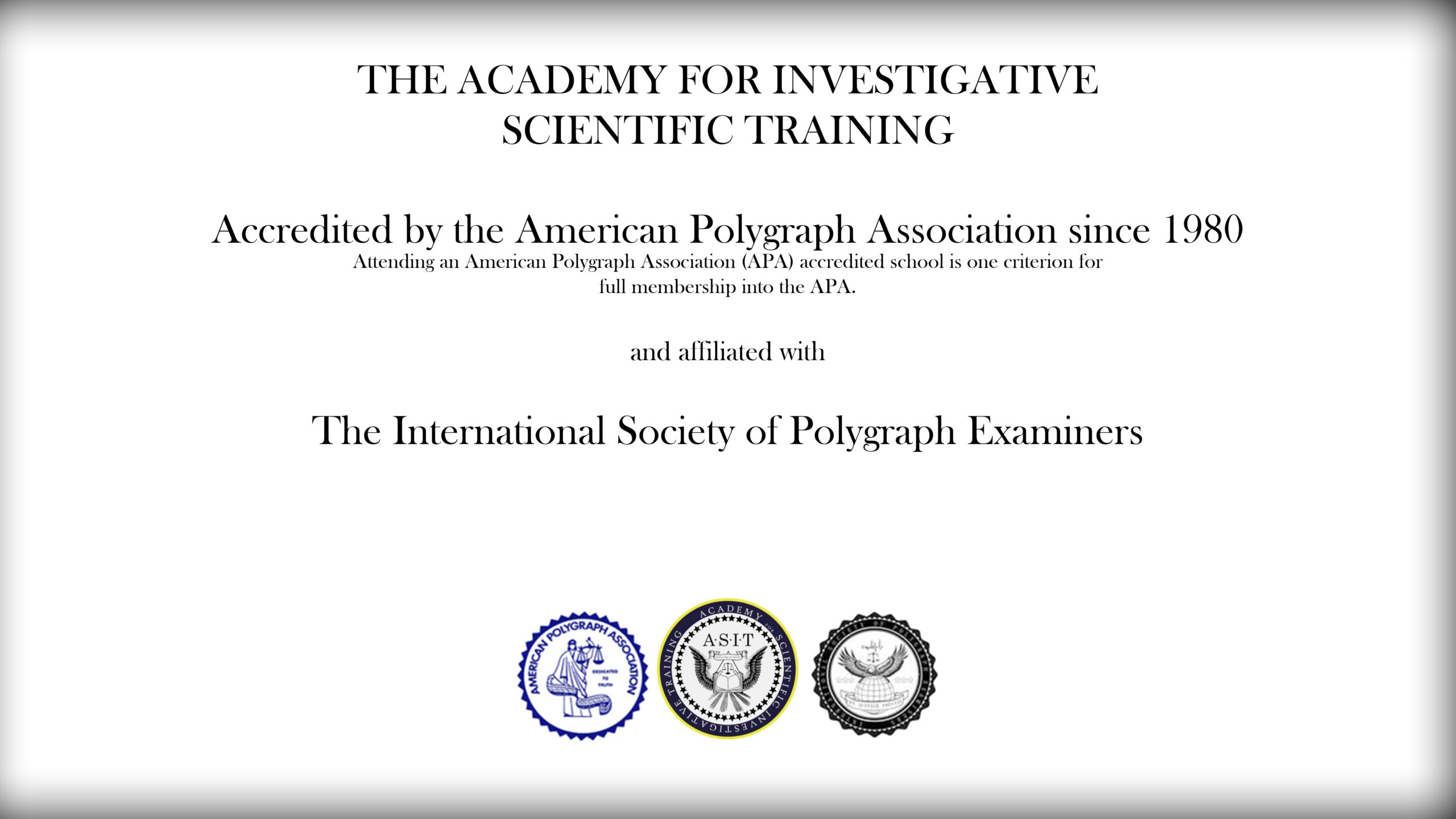
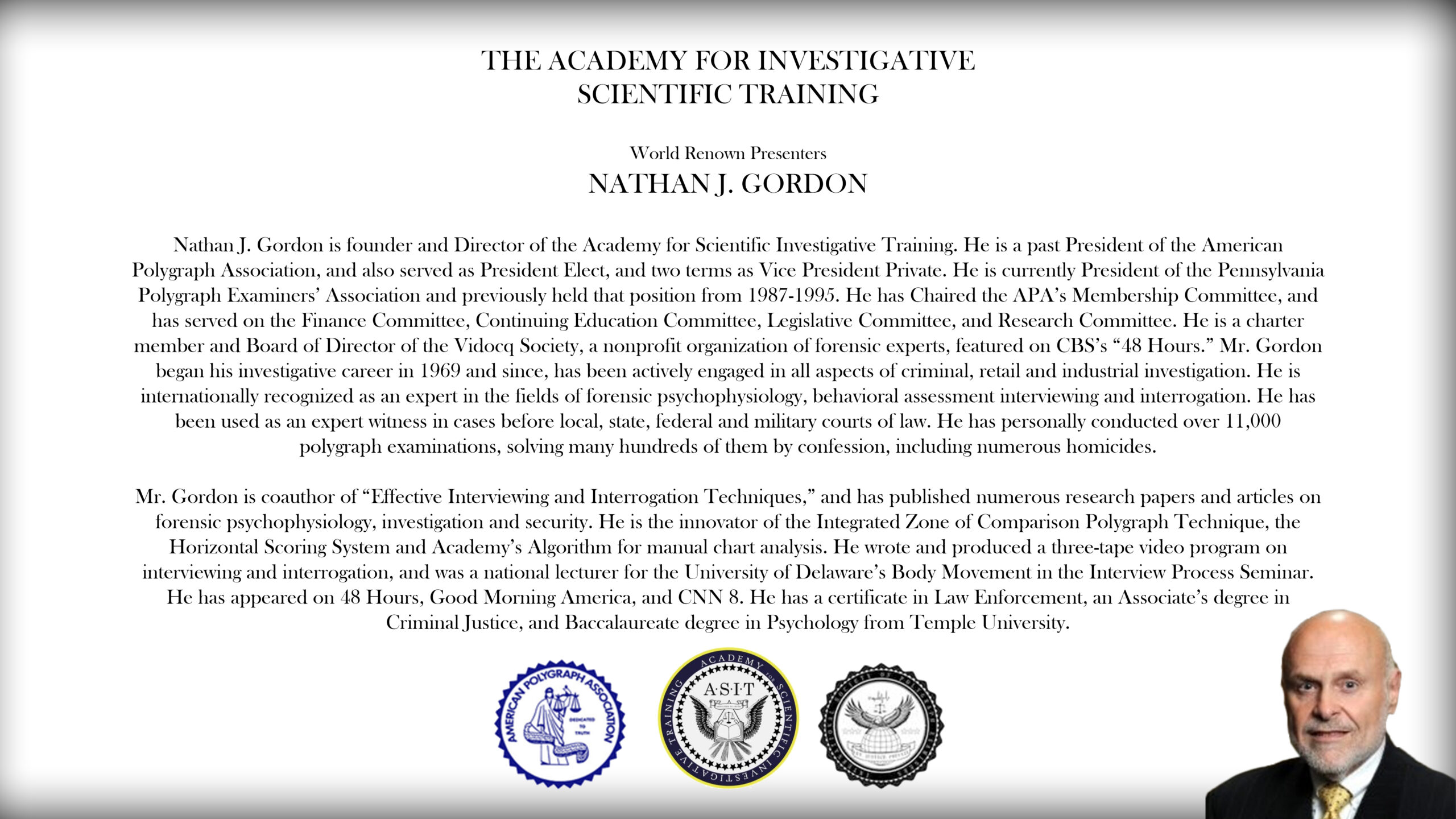
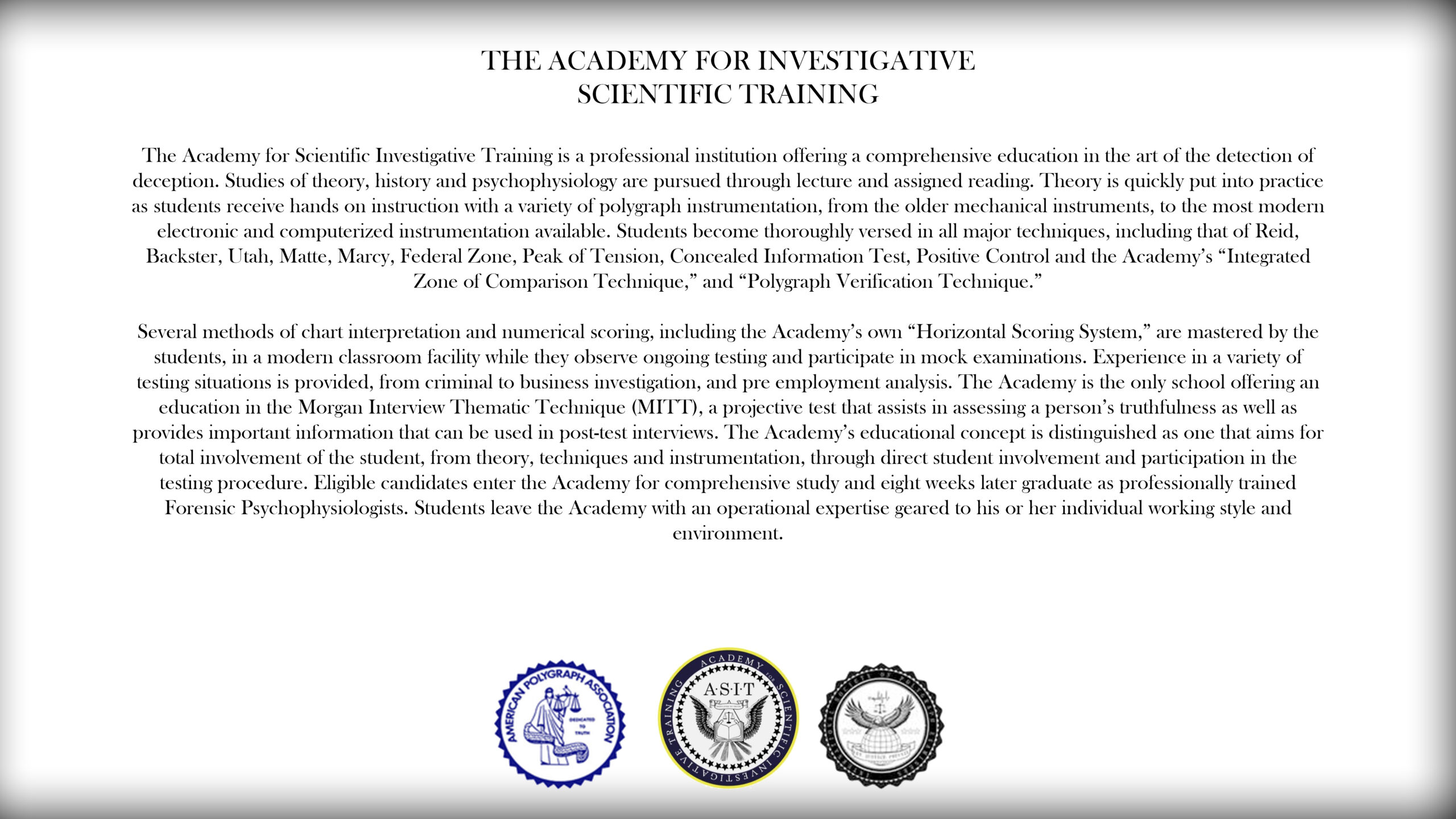
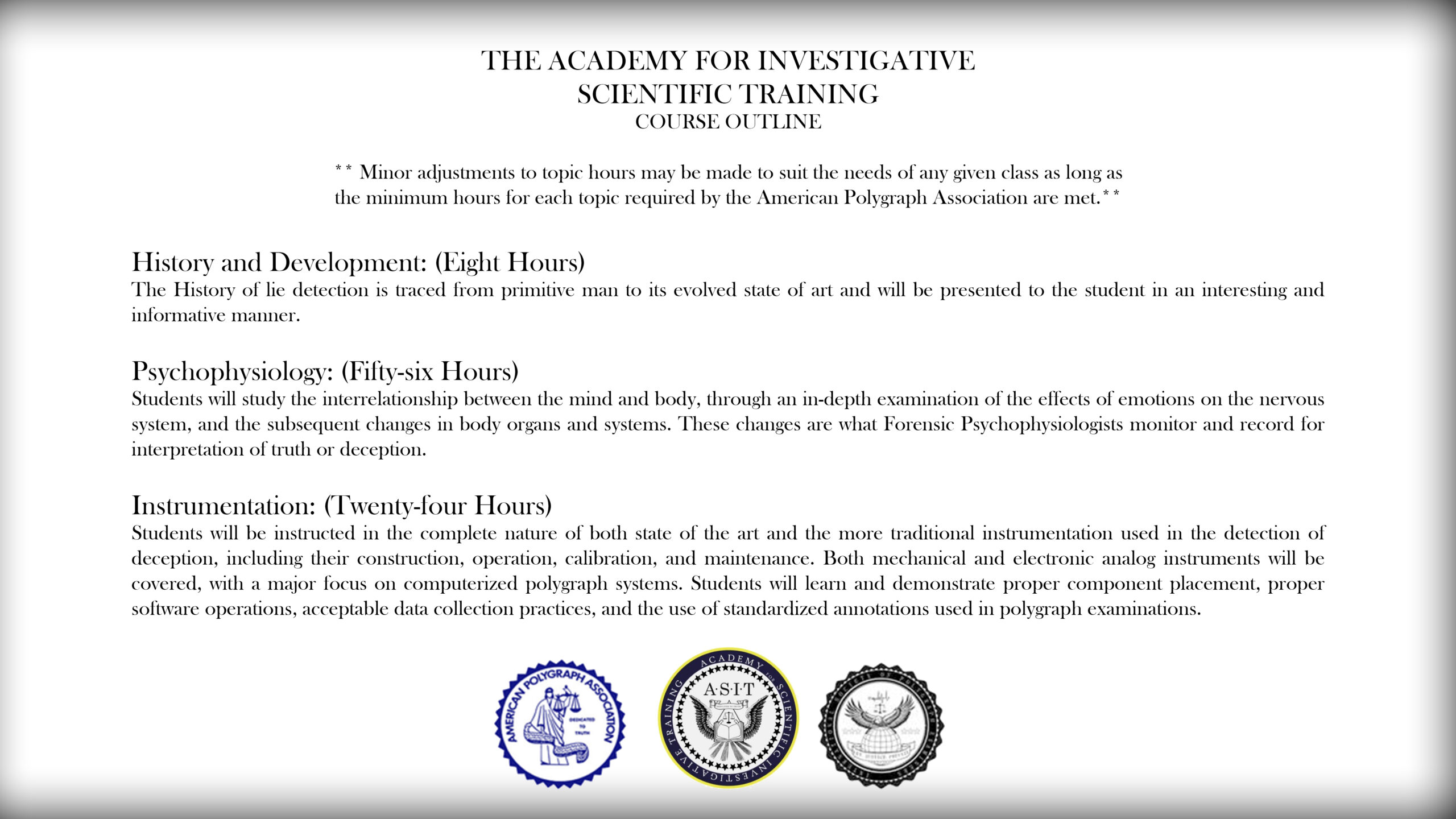
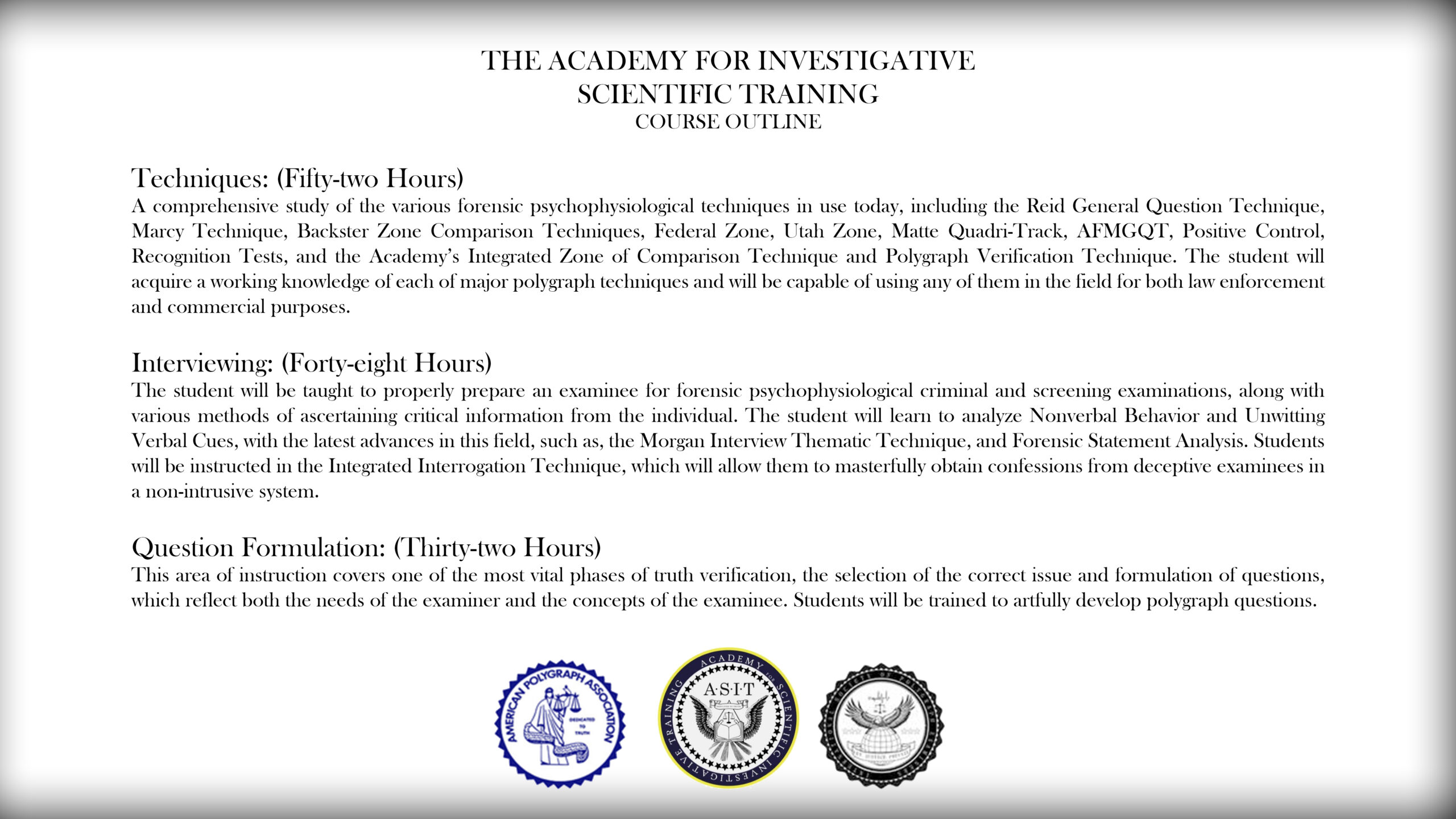
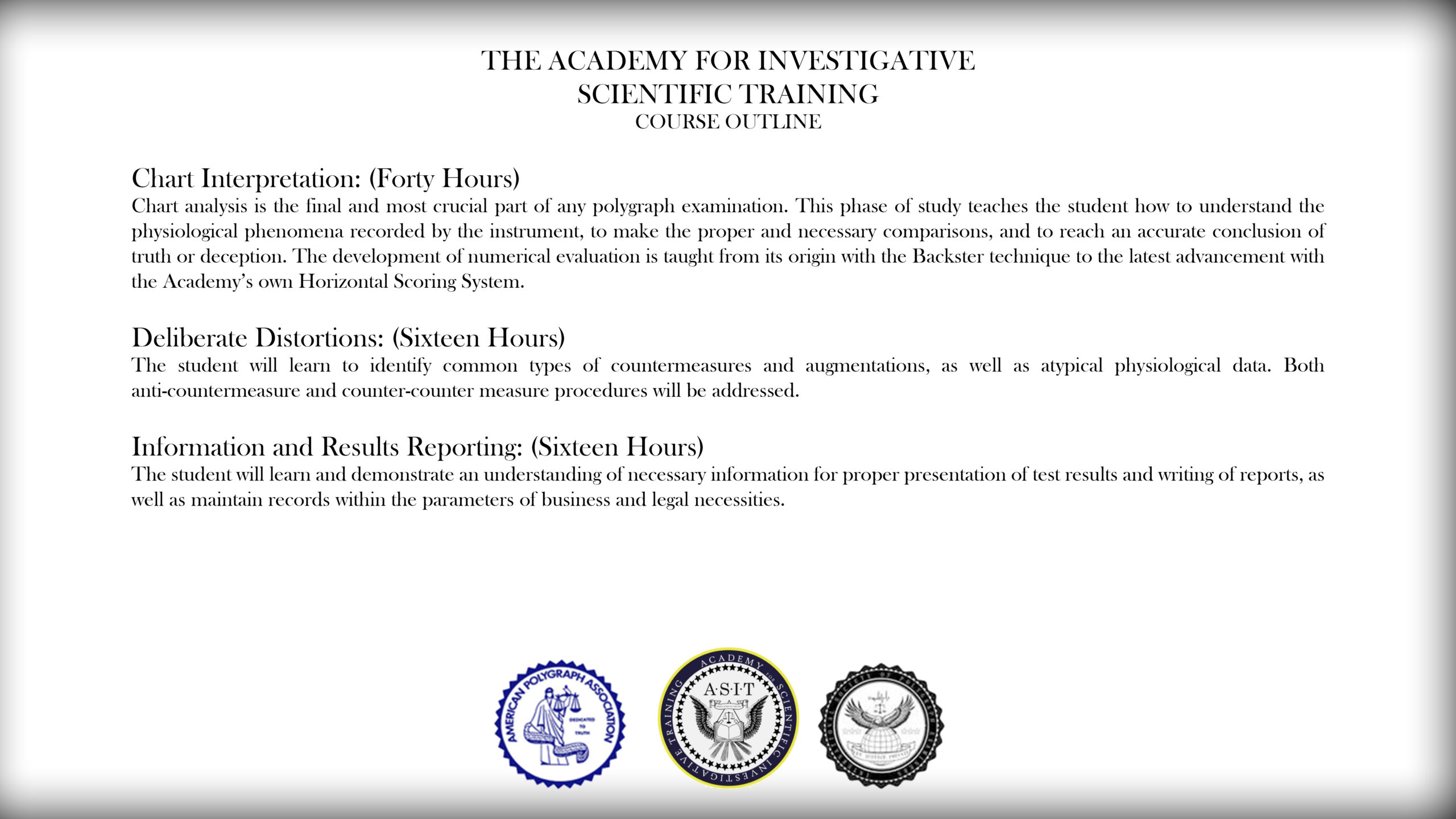
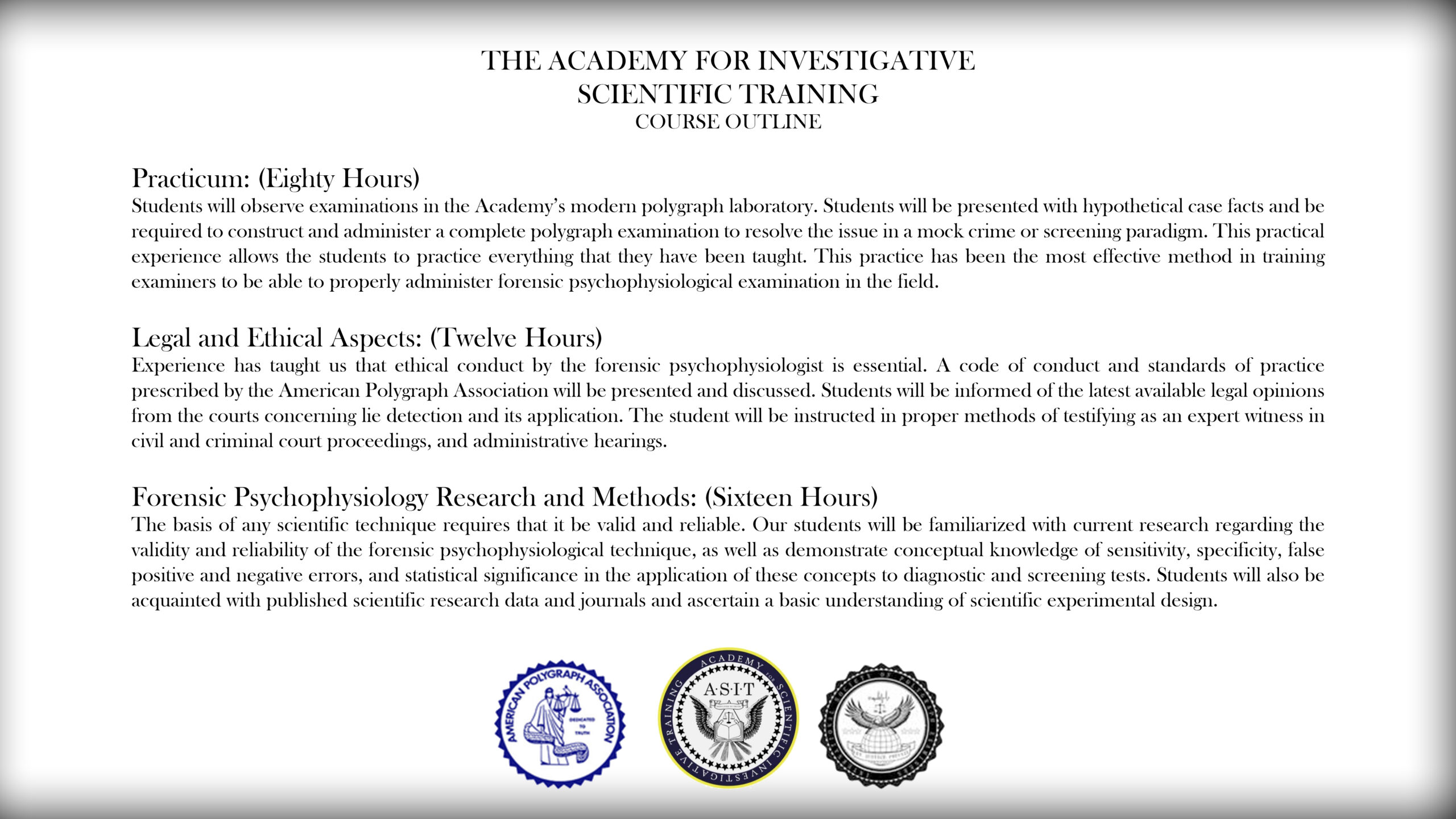
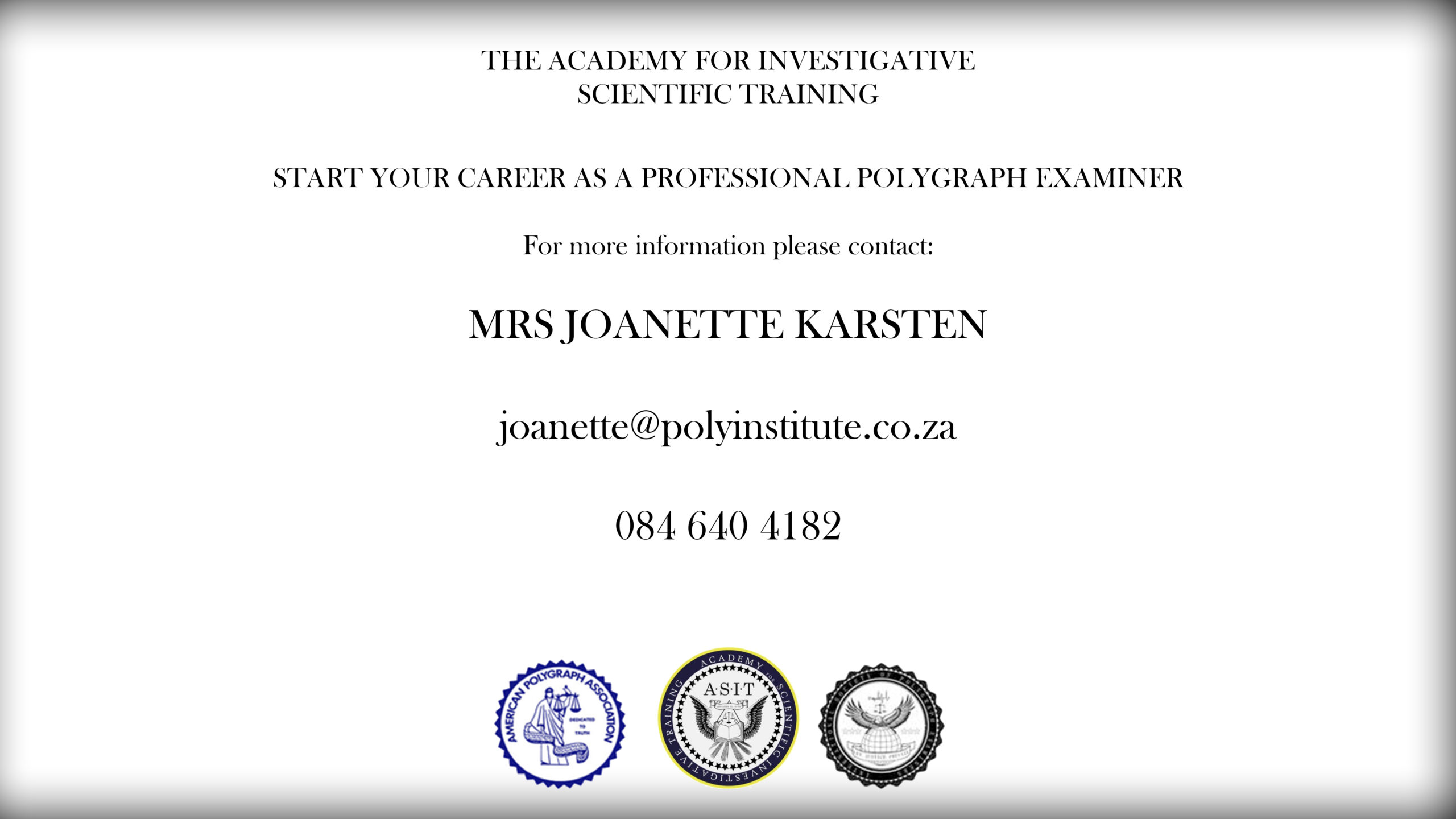
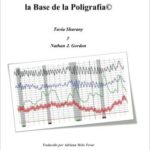
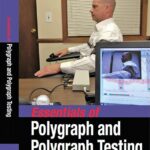
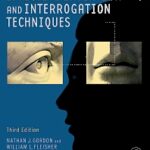
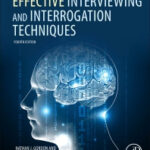
You must be logged in to post a comment.